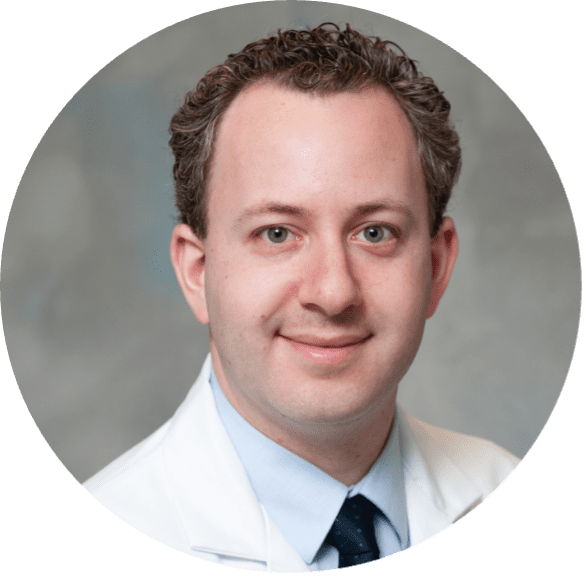
Dr. Avorn is a graduate of Columbia College and Harvard Medical School; he completed his training in primary care internal medicine within the Harvard medical system. Dr. Avorn pioneered the concept of academic detailing in the 1980s, with the creation, deployment, and evaluation of the first such program. After testing it in a randomized trial in four state Medicaid programs, he went on to study the approach in nursing homes and demonstrated it significantly reduced overuse of antipsychotic drugs and improved the cognitive function of overmedicated patients. Both papers written on these trials were published in The New England Journal of Medicine. Dr. Avorn practiced internal medicine for over 30 years in ambulatory and in-hospital settings and helped to establish the program in geriatric medicine at Harvard. He is an expert in geriatric medication use, the study of adverse drug effects (particularly in patients with chronic disease), and medication cost-effectiveness analysis, and is the author of chapters on these subjects in the main textbooks in each field, as well being the author or co-author of over 400 papers in the medical literature. Dr. Avorn is a Professor of Medicine at Harvard Medical School and Chief of the Division of Pharmacoepidemiology and Pharmacoeconomics at Brigham & Women’s Hospital in Boston, one of the main Harvard teaching hospitals. In 2004 he participated in the founding of the Alosa Health, a non-profit organization dedicated to providing doctors with non-commercial education about medications. He was a co-author of the Institute of Medicine report on the development of trustworthy clinical guidelines, and the author of Powerful Medicines: The Benefits, Risks, and Costs of Prescription Drugs, published by Knopf and now in its 11th printing.


Ellie Grossman, MD MPH, is a general internist at Cambridge Health Alliance (CHA). She received her undergraduate degree from Harvard College and medical degree from New York University School of Medicine. She completed internal medicine residency training at University of California, San Francisco and then a general medicine research fellowship at Beth Israel Deaconess Medical Center and Harvard School of Public Health. She is board-certified in internal medicine and addiction medicine. She has performed clinical research in the area of addiction and smoking cessation; in her current position at CHA as medical director for primary care and behavioral health integration, she works with a multidisciplinary team to improve screening practices and management of behavioral health concerns in a network of 11 primary-care practices.

Dr. Rome is a general internist and health policy researcher at Harvard Medical School and a faculty member in the Division of Pharmacology and Pharmacoeconomics in the Department of Medicine at Brigham and Women’s Hospital. Within the Division, Dr. Rome works within the Program On Regulation, Therapeutics, And Law (PORTAL), where he studies how federal and state policies influence the regulation, use, and cost of prescription drugs and the resulting effects on patient access, affordability, and clinical outcomes. His work has been published in the New England Journal of Medicine, JAMA, Health Affairs, and BMJ. His research has also been featured in a Congressional report about rising prescription drug prices and he has testified about the regulation and cost of medications in front of the US House of Representatives. In 2022, he was selected as an Emerging Leaders in Health and Medicine Scholar by the National Academy of Medicine.
Dr. Rome trained in internal medicine at Brigham and Women’s Hospital and is a practicing primary care physician at the Phyllis Jen Center for Primary Care at Brigham and Women’s Hospital. He serves as the Site Co-Director for the HMS Fellowship in General Medicine and Primary Care and the Assistant Director for the Brigham and Women’s Hospital Internal Medicine Residency Management and Leadership Pathway. He received his undergraduate degree in community health from Brown University, his medical degree from Harvard Medical School, and his Master of Public Health from the Harvard T.H. Chan School of Public Health.

Christopher M. Worsham, M.D., M.P.H. is a pulmonologist and critical care physician at Massachusetts General Hospital, Assistant Professor of Medicine and researcher at Harvard Medical School, and a Teaching Associate at the HMS Department of Health Care Policy. He performs health services and large database research using econometric methods, focusing on the use of natural experiments to study physician behavior, resource utilization, and health care policy, with special interest in the intensive care unit. Through his work, he strives to find opportunities to create higher value and more equitable health care for everyone. He completed his M.D. at Dartmouth Medical School, M.P.H. at Harvard, residency in internal medicine and chief residency in quality and safety at Boston Medical Center and VA Boston, and fellowship in pulmonary and critical care medicine at the Harvard combined program before joining the faculty at MGH and HMS as a physician-scientist. He is co-author of Random Acts of Medicine:
Hidden Forces That Sway Doctors, Impact Patients, and Shape Our Health.

Aaron S. Kesselheim, M.D., J.D., M.P.H., is a Professor of Medicine at Harvard Medical School and a faculty member in the Division of Pharmacoepidemiology and Pharmacoeconomics in the Department of Medicine at Brigham and Women’s Hospital. He is a primary care physician at the Phyllis Jen Center for Primary Care at Brigham and Women’s Hospital. Within the Division, Aaron created and helps lead the Program On Regulation, Therapeutics, And Law (PORTAL, www.PORTALresearch.org), an interdisciplinary research center focusing on intersections among prescription drugs and medical devices, patient health outcomes, and regulatory practices and the law. PORTAL is now among the largest independent (non-industry-funded) academic centers focusing on these issues in the country. In 2020, he was elected to the National Academy of Medicine.

Dr. Fischer did his undergraduate work at Harvard College and attended Yale Medical School. At Brigham & Women’s Hospital, Dr. Fischer completed a residency in primary care medicine and has been practicing primary care since 2000. He received an MS degree in Clinical Effectiveness from the Harvard School of Public Health and is currently an Associate Professor of Medicine at Harvard Medical School. He is a widely published health services researcher studying the effects of reimbursement policies and other interventions on influencing physician prescribing and patient outcomes. For several years he headed the physician medication education program at BWH and has worked closely with Drs. Avorn and Choudhry on the Alosa Health programs of academic detailing since their inception in 2005. In this role, he has helped lead the creation of prescriber education materials and taken a central role in training academic detailers for several public sector programs. He is the Principal Investigator of the AHRQ-supported National Resource Center on Academic Detailing, which supports the creation and improvement of academic detailing programs throughout the country.